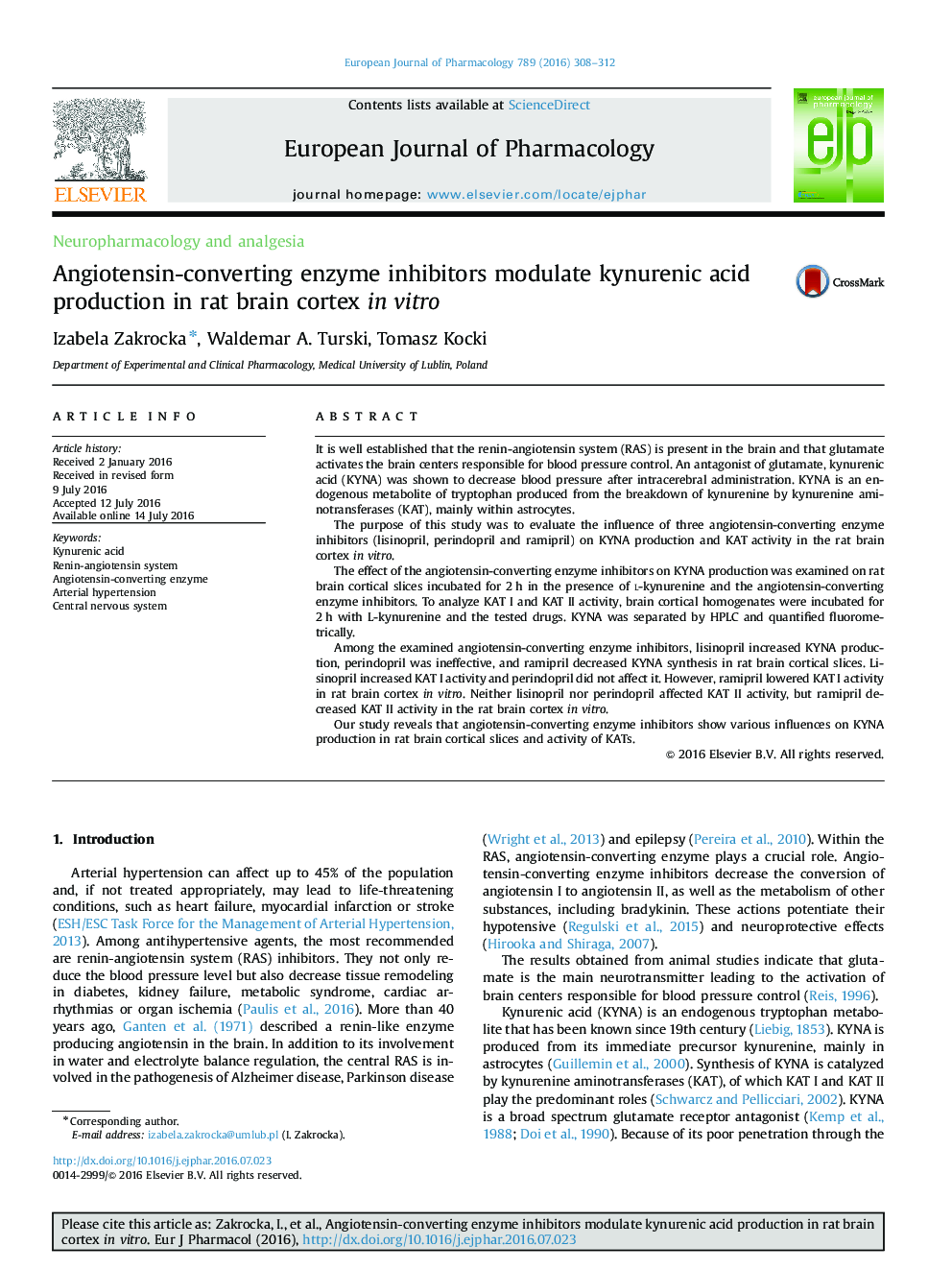| Article ID | Journal | Published Year | Pages | File Type |
|---|---|---|---|---|
| 2530825 | European Journal of Pharmacology | 2016 | 5 Pages |
It is well established that the renin-angiotensin system (RAS) is present in the brain and that glutamate activates the brain centers responsible for blood pressure control. An antagonist of glutamate, kynurenic acid (KYNA) was shown to decrease blood pressure after intracerebral administration. KYNA is an endogenous metabolite of tryptophan produced from the breakdown of kynurenine by kynurenine aminotransferases (KAT), mainly within astrocytes.The purpose of this study was to evaluate the influence of three angiotensin-converting enzyme inhibitors (lisinopril, perindopril and ramipril) on KYNA production and KAT activity in the rat brain cortex in vitro.The effect of the angiotensin-converting enzyme inhibitors on KYNA production was examined on rat brain cortical slices incubated for 2 h in the presence of l-kynurenine and the angiotensin-converting enzyme inhibitors. To analyze KAT I and KAT II activity, brain cortical homogenates were incubated for 2 h with L-kynurenine and the tested drugs. KYNA was separated by HPLC and quantified fluorometrically.Among the examined angiotensin-converting enzyme inhibitors, lisinopril increased KYNA production, perindopril was ineffective, and ramipril decreased KYNA synthesis in rat brain cortical slices. Lisinopril increased KAT I activity and perindopril did not affect it. However, ramipril lowered KAT I activity in rat brain cortex in vitro. Neither lisinopril nor perindopril affected KAT II activity, but ramipril decreased KAT II activity in the rat brain cortex in vitro.Our study reveals that angiotensin-converting enzyme inhibitors show various influences on KYNA production in rat brain cortical slices and activity of KATs.
